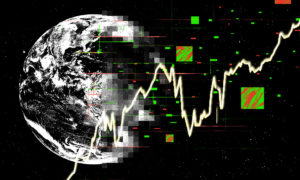Harvard Business Review, May – June 2021
 For two decades progressive thinkers have argued that a more sustainable form of capitalism would arise if companies regularly measured and reported on their environmental, social, and governance (ESG) performance. But although such reporting has become widespread, and some firms are deriving benefits from it, environmental damage and social inequality are still growing.
For two decades progressive thinkers have argued that a more sustainable form of capitalism would arise if companies regularly measured and reported on their environmental, social, and governance (ESG) performance. But although such reporting has become widespread, and some firms are deriving benefits from it, environmental damage and social inequality are still growing.
This article, by Timberland’s former COO, outlines the problems with both sustainability reporting and sustainable investing. The author discusses nonstandard metrics, insufficient auditing, unreliable ESG ratings, and more. But real progress, he says, requires not just better measurement and reporting practices but also changes in regulations, investment incentives, and mindsets.
Read the full article: https://hbr.org/2021/05/overselling-sustainability-reporting
 Managers of ESG investments create false hope, exaggerate outperformance, and contribute to the delay of long-past-due regulatory action.
Managers of ESG investments create false hope, exaggerate outperformance, and contribute to the delay of long-past-due regulatory action.

 On April 8, the National Oceanic and Atmospheric Administration observatory in Mauna Loa, Hawaii, reported that the carbon dioxide levels in the atmosphere had reached 419 parts per million, the highest levels recorded in more than 4 million years. That same day, BlackRock, the world’s largest asset manager, announced another milestone: It had raised
On April 8, the National Oceanic and Atmospheric Administration observatory in Mauna Loa, Hawaii, reported that the carbon dioxide levels in the atmosphere had reached 419 parts per million, the highest levels recorded in more than 4 million years. That same day, BlackRock, the world’s largest asset manager, announced another milestone: It had raised  For the past 30 years, celebrated academics and business leaders have promoted the idea that companies often profit by addressing social and environmental problems. Although these proposals have been hailed as promising breakthroughs, they are unscientific and counterproductive.
For the past 30 years, celebrated academics and business leaders have promoted the idea that companies often profit by addressing social and environmental problems. Although these proposals have been hailed as promising breakthroughs, they are unscientific and counterproductive. Institutional Investor
Institutional Investor Harvard Business Review
Harvard Business Review The Guardian
The Guardian